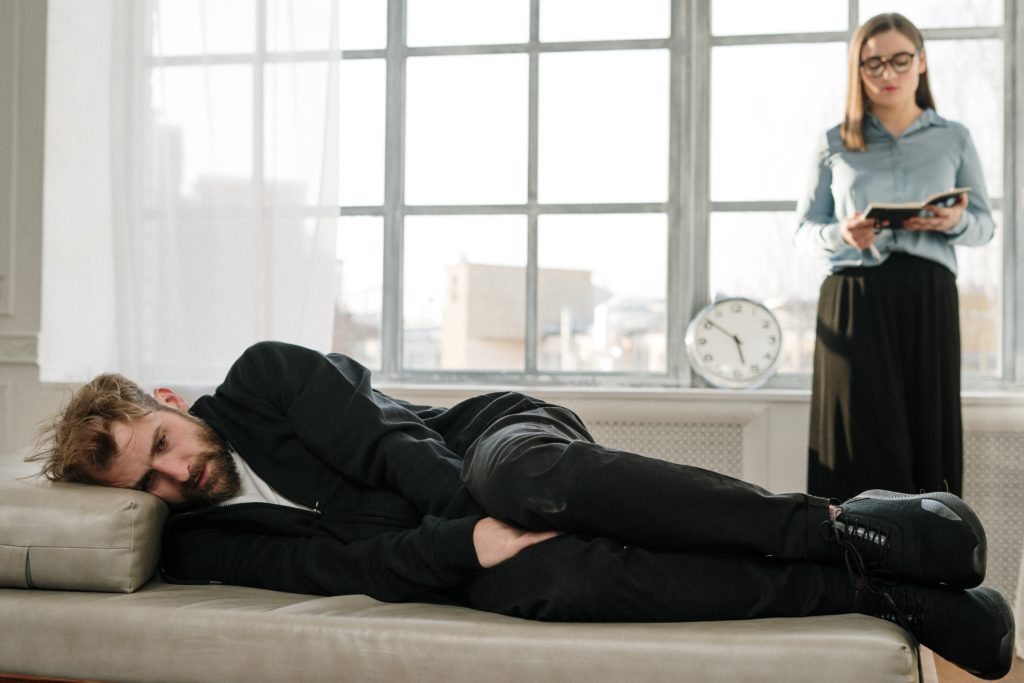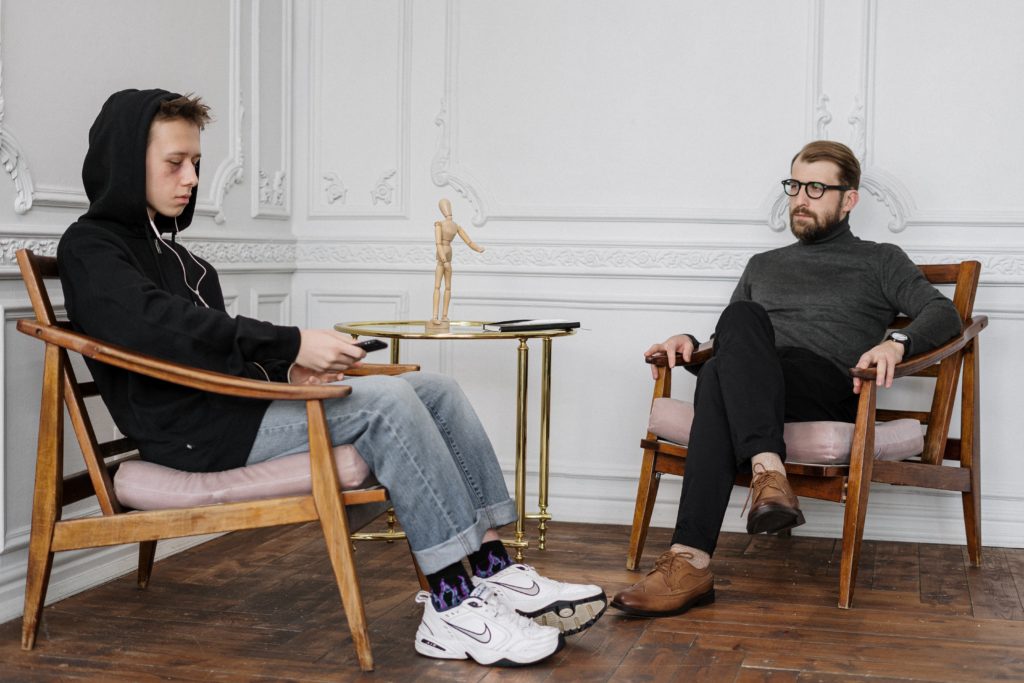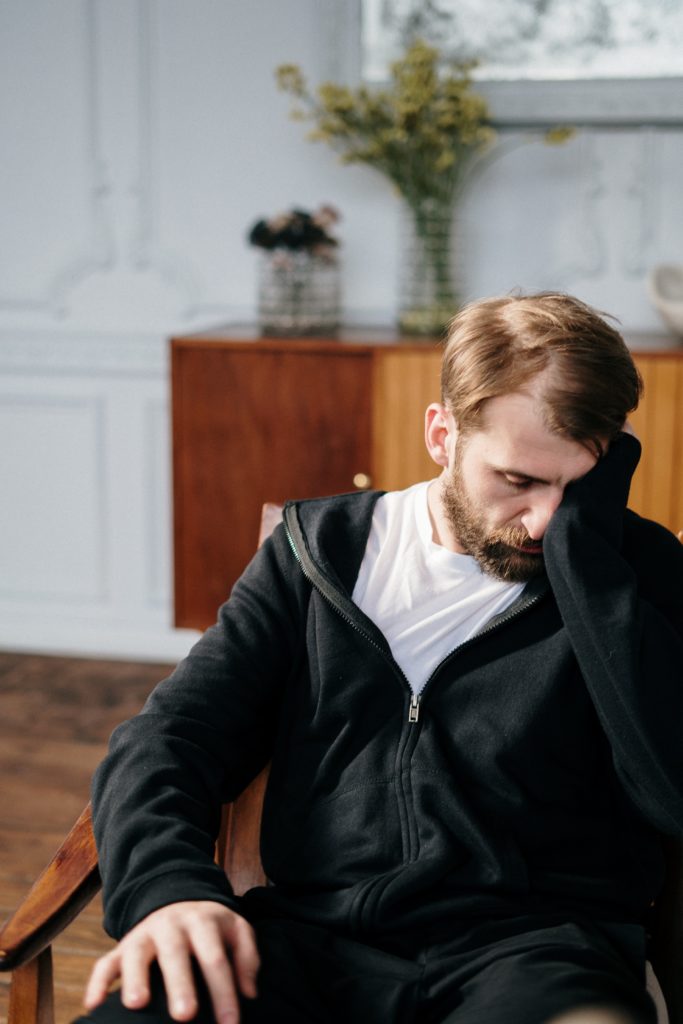
Mental illness is a phenomenon that does not care about gender. Everyone is susceptible to torment and pain, but unlike women, men are less likely to seek therapy for this silent epidemic.
In the United States, 1 in 5 people suffer from mental illness, with 6 million US men dealing with them. Although these issues might be common, it is still difficult for men to face. Conditions such as anxiety, depression, schizophrenia, bipolar and eating disorders often go undiagnosed because men are more likely to be afraid to seek help than women. Two of the leading causes of male deaths worldwide are suicide and depression. Male mental health issues are serious and finding therapy for them is important.
Statistics about Men’s Issues:
According to data from 2010 to 2013 by the Centers for Disease Control and Prevention (CDC), 9% of American men deal with feelings of anxiety or depression.

Suicide is the 10th leading cause of death in the United states, with rates being significantly higher for men. From 1999 to 2017, rates increased from 17.8% to 22.4% per 100,000 men.
Understanding Mental Illness in Men
Many men do not seek help because they feel they can’t or they have to hold up to their manliness and appear tough. Some men perceive asking for help as a sign of weakness to discuss their emotions, often feeling too vulnerable. Men are told to “man up” when they brush on their emotions, often repressing any feelings that may need to be addressed.
Men of color are also more likely to deal with mental health issues over white men. According to an article, men in the black community for example are more likely to experience different problems such as trauma or posttraumatic stress disorder (PTSD).
Men who do choose to pursue therapy often come for different reasons. Because the role of men in society, relationships and the workplace has changed, some men feel they have lost their traditional roles in society, leading to frustration and stress while trying to find his place in a relationship or place of employment.
Conditions such as posttraumatic stress may bring about anger and aggression. Men with PTSD might be more likely to cope by means of substance use, such as drugs or alcohol. Men who experience depression may also be irritable or angry while suppressing feelings of sadness. Men are not as likely to discuss their feelings or emotions or express thoughts of suicide.
Some men also experience shame or fear related to the stereotypes associated with their roles in life. A father who has an income that is not sufficient to provide for the needs of those he cares for may experience frustration or what is considered emasculation due to the belief that he should be the one who provides for his family. This is often seen in families where his spouse or partner has a higher paying job than he does.
Men tend to avoid going to therapy for a number of reasons. According to research, they may delay until they reach the point of crisis. They may also be more concerned about their privacy and worry that getting help might have a negative effect on their image or standing.
Men are also less likely to show certain emotions due to societal norms. Showing signs of fear, emotional vulnerability, or sensitivity are considered to be less masculine and many men do not want to be labeled in such away. Unfortunately, holding these emotions back may lead to other emotional issues that affect their overall wellbeing.
Men’s Mental Health Conditions
The most common issues men seek therapy for include:
- Stress
- Anger
- Substance dependency or addiction
- Work adjustment issues, including anger, avoidance, procrastination or success sabotage
- Body image issues
- Bipolar
- Relationship issues
- Other additions or dependency struggles, including sex, gambling, internet or gaming
- Depression

Therapy for Men
Although many men tend to perceive seeking help as a sign of weakness, there are many therapists and other mental health professionals ready to help and to address these misconceptions that they are not able to receive help. Therapists are available to help men understand that getting help can actually be good for them and their masculinity and the things they need help with are “normal,” while helping to address negative feelings, to meet individual patients’ goals and to get on the path to true wellness.
Despite the fact that men are less likely to seek help than women, counseling for men is growing in popularity. According to Men’s Health, 42% of men aged between 18 and 32 think seeing a counselor is important. More men are realizing that talking to someone is helpful and that their mental health is just as important as the rest of their health. Mental health is an investment that encourages a longer and more enjoyable life.
Who to See for Men’s Therapy
There are many different types of mental health professionals offering men’s therapy. Who you or your loved one should see depends on many factors, including who is available in your area, what your insurance covers or what you can afford and which services they offer.
- Psychiatrists
- Licensed Social Workers
- Psychologists
- Psychiatric Mental Health Nurses
- Licensed Professional Counselors
There are many different types of therapy options for men. Some men will benefit from multiple types of therapy while others may opt to pursue help from just one.
Individual therapy is beneficial for the treatment of nearly any mental health disorder. Some of the most common options for individual therapy include:
- Motivational interviewing, which is purposed to help individuals move from a place of uncertainty into a space where he can make healthier decisions while gaining the ability to accomplish personal goals.
- Psychiatry sessions are administered by a psychiatrist who is skilled in mental illness and addiction. This person listens to our problems and can help in numerous ways, including psychotherapy, brain stimulation treatment, medication and more.
- Cognitive behavioral therapy, which is often used with a number of mental disorders and addictions, including obsessive-compulsive disorder (OCD), PTSD, schizophrenia, eating disorders and more. This is often used to help a person better understand their thoughts and behaviors so they can change them for the better.
- Dialectical behavioral therapy looks at a person’s experiences and life and digs deep to help them learn how to best cope. DBT is often a good for men and be used with different disorders and addictions.
Support groups are another helpful option for women coping with mental health challenges as well. Support groups can be found at the National Alliance for Mental Health Find Support page or by reaching out to a mental health therapist.
If you or a loved one are suffering from mental illness, don’t hesitate to get help today. The start of the path to recovery is just a click or phone call away.
